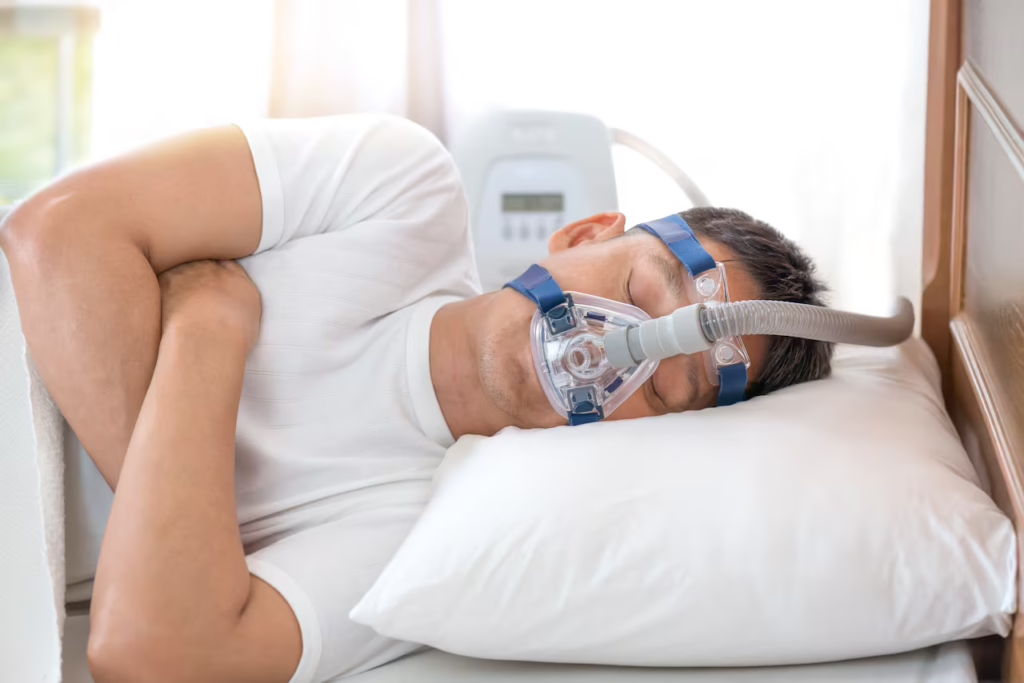Sleep disorders can have a significant impact on a person’s overall health and well-being. However, diagnosing these disorders can often be challenging due to the subjective nature of symptoms and the complex nature of sleep itself. That’s where sleep testing plays a crucial role. By analyzing a person’s sleep patterns and gathering objective data, sleep testing helps medical professionals accurately diagnose and understand sleep disorders. It provides critical insights that can lead to improved treatment plans and enhanced quality of life for individuals struggling with these conditions.
Understanding Sleep Disorders
Sleep disorders encompass a wide range of conditions that affect the quality, duration, and patterns of sleep. They can be categorized into various types depending on their causes and symptoms. To accurately diagnose sleep disorders, it is essential to understand their overall nature and impacts on individuals.
Sleep testing serves as a vital tool in diagnosing sleep disorders accurately. By monitoring and analyzing a person’s sleep patterns and behaviors, sleep testing provides objective data that helps medical professionals identify the underlying causes of sleep disturbances. This data is instrumental in formulating appropriate treatment plans tailored to the individual’s specific needs.
Individuals experiencing sleep disorders may also encounter challenges in their daily lives, such as difficulties concentrating, mood disturbances, and decreased performance at work or school. The repercussions of untreated sleep disorders can extend beyond the individual, affecting relationships and overall quality of life.
Defining Sleep Disorders
Sleep disorders refer to any conditions that interfere with a person’s ability to have a restful and restorative sleep. These disorders can manifest through various symptoms, including difficulty falling asleep, staying asleep, excessive daytime sleepiness, or abnormal behavior during sleep. Sleep disorders can range from common ones like insomnia and sleep apnea to rarer conditions like narcolepsy and restless leg syndrome.
It is crucial for individuals experiencing persistent sleep disturbances to seek medical evaluation and treatment to address the underlying causes of their sleep disorders. A comprehensive assessment by a healthcare professional may involve sleep studies, questionnaires, and physical examinations to determine the most appropriate management approach.

Common Types of Sleep Disorders
Insomnia, characterized by difficulty falling asleep or staying asleep, is one of the most prevalent sleep disorders. Sleep apnea, on the other hand, involves interruptions in breathing during sleep, leading to daytime fatigue. Other common sleep disorders include narcolepsy, which causes excessive daytime sleepiness, and restless leg syndrome, characterized by an irresistible urge to move the legs during rest.
Each type of sleep disorder presents unique challenges and may require tailored interventions for effective management. Treatment options for sleep disorders can range from lifestyle modifications and behavioral therapies to medical interventions such as continuous positive airway pressure (CPAP) for sleep apnea or medications for conditions like narcolepsy. Collaborating with healthcare providers specializing in sleep medicine can help individuals navigate the complexities of managing their sleep disorders.
The Role of Sleep Testing in Diagnosis
Furthermore, sleep testing plays a crucial role in not only diagnosing sleep disorders but also in assessing the effectiveness of treatment interventions over time. By conducting follow-up sleep tests, healthcare providers can track improvements or changes in a patient’s sleep patterns, allowing for adjustments to treatment plans as needed to optimize outcomes and overall quality of life.
The Process of Sleep Testing
Sleep testing typically involves spending a night at a sleep center or undergoing a home-based sleep test. During the test, various parameters such as brain activity, eye movements, muscle activity, heart rate, and breathing patterns are monitored. This information is recorded and analyzed by sleep specialists to identify any abnormalities that may indicate a sleep disorder.
In addition to the physical monitoring during sleep testing, patients may also be asked to keep a sleep diary leading up to the test. This diary can provide valuable insights into the individual’s sleep habits, daily routines, and potential triggers for sleep disturbances, offering a more comprehensive view for healthcare providers to consider during the diagnostic process.
Different Types of Sleep Tests
There are different types of sleep tests available depending on the specific suspected sleep disorder. Polysomnography (PSG) is a comprehensive test that monitors multiple physiological parameters to diagnose various sleep disorders. Continuous positive airway pressure (CPAP) titration study is specifically designed to determine the optimal air pressure for individuals with sleep apnea who require CPAP therapy. Multiple sleep latency test (MSLT) is used for diagnosing narcolepsy by measuring how quickly a person falls asleep during specific daytime nap opportunities.
Moreover, emerging technologies in the field of sleep testing continue to advance, offering innovative solutions for more precise and convenient diagnostic methods. Home sleep apnea tests, for example, provide a cost-effective and accessible alternative to traditional in-lab testing, allowing patients to undergo monitoring in the comfort of their own homes while still receiving accurate results for effective diagnosis and treatment planning.
Benefits of Accurate Diagnosis Through Sleep Testing
The accurate diagnosis of sleep disorders through sleep testing offers numerous benefits for individuals struggling with these conditions. It not only enables healthcare professionals to design tailored treatment plans but also leads to significant improvements in overall quality of life.
Furthermore, accurate diagnosis through sleep testing can provide valuable insights into the specific nature of a sleep disorder, allowing healthcare professionals to better understand its underlying mechanisms and potential complications. This in-depth understanding can guide the development of more precise and effective treatment strategies, ultimately leading to better outcomes for patients. Find more about complications on https://www.cancer.gov/publications/dictionaries/cancer-terms/def/complication
Improved Treatment Plans
Accurate diagnosis through sleep testing allows healthcare professionals to develop treatment plans customized to the specific sleep disorder. For example, individuals diagnosed with sleep apnea may benefit from continuous positive airway pressure (CPAP) therapy, while those with insomnia may benefit from cognitive-behavioral therapy for insomnia (CBTI). When treatment plans are tailored to address the root causes of the sleep disorder, individuals have a higher chance of achieving effective and lasting results.
Enhanced Quality of Life
Sleep disorders can significantly impact a person’s quality of life. They can lead to daytime sleepiness, reduced cognitive function, mood disturbances, and even increase the risk of accidents. By accurately diagnosing these disorders, sleep testing helps healthcare professionals identify and address the underlying causes, allowing individuals to experience improved sleep, increased energy levels, and better overall well-being.
Moreover, the improved quality of life resulting from accurate diagnosis and targeted treatment of sleep disorders can have far-reaching effects beyond individual well-being. It can positively impact relationships, work performance, and overall societal productivity. By addressing sleep disorders at their core, individuals can lead more fulfilling and healthier lives, contributing to a more vibrant and thriving community as a whole.
Misconceptions About Sleep Testing
Despite the valuable insights it can provide, there are some misconceptions and fears surrounding sleep testing. These misconceptions often discourage individuals from undergoing the necessary testing, potentially delaying the diagnosis and treatment of sleep disorders.
Understanding the importance of sleep testing is crucial in maintaining overall health and well-being. By monitoring sleep patterns and identifying any underlying issues, individuals can take proactive steps to improve their quality of sleep and overall quality of life.
Debunking Sleep Test Myths
One common misconception is that sleep testing is uncomfortable and invasive. However, modern sleep testing procedures are designed to be non-intrusive and minimally disruptive, allowing individuals to sleep comfortably and naturally during the evaluation. Additionally, some individuals believe that sleep tests are unnecessary or only required for severe sleep problems. In reality, sleep testing can provide valuable insights even for milder sleep disturbances, helping identify potential risks and prevent the progression of conditions.
Moreover, advancements in technology have made sleep testing more convenient and accessible than ever before. Home sleep testing kits are now available, allowing individuals to undergo testing in the comfort of their own beds, eliminating the need for overnight stays in a sleep center.
Addressing Fears and Concerns
Fear of being diagnosed with a sleep disorder or anxiety about the testing process itself can prevent individuals from seeking the help they need. Addressing these fears and concerns through education and reassurance is vital. It is essential for healthcare professionals to provide clear explanations of the sleep testing process, its purpose, and its potential benefits to alleviate any anxieties individuals may have.
By debunking myths and addressing fears surrounding sleep testing, individuals can take proactive steps towards better sleep health and overall well-being. Seeking professional guidance and undergoing necessary testing can lead to early diagnosis and effective treatment of sleep disorders, ultimately improving quality of life and promoting long-term health.
The Future of Sleep Testing
The field of sleep testing continues to evolve with technological advancements and ongoing research. These advancements promise to bring improvements in the accuracy, convenience, and accessibility of sleep testing methods. To read more about accessibility click here.
Technological Advances in Sleep Testing
Technological advancements have made sleep testing more streamlined and accessible. Portable sleep monitoring devices, for instance, are becoming increasingly popular for home-based sleep testing, allowing individuals to undergo testing in the comfort of their own homes. These devices provide convenience without compromising the accuracy of the collected data.
Moreover, these portable devices are equipped with advanced sensors that can monitor various physiological parameters during sleep, such as heart rate, oxygen saturation levels, and brain activity. This wealth of data allows healthcare professionals to gain a comprehensive understanding of an individual’s sleep patterns and identify any abnormalities or sleep disorders more accurately.

The Impact of Research on Sleep Testing Methods
Ongoing research in the field of sleep medicine is refining and expanding the understanding of sleep disorders and their underlying causes. This research is leading to the development of new testing methods and more targeted treatment options. By staying at the forefront of research, healthcare professionals can offer patients the most up-to-date and effective sleep testing methods available.
For example, recent studies have focused on the relationship between sleep disorders and other medical conditions, such as cardiovascular disease and mental health disorders. Researchers have discovered that sleep disorders can significantly impact these conditions and vice versa. This knowledge has paved the way for integrated diagnostic approaches that consider the interplay between sleep and overall health, resulting in more comprehensive and personalized treatment plans.
Furthermore, advancements in genetic research have shed light on the genetic factors that contribute to sleep disorders. By identifying specific genetic markers associated with different sleep disorders, researchers are working towards developing genetic tests that can accurately diagnose these conditions. This breakthrough could revolutionize sleep testing by providing precise and targeted diagnostic tools.
In conclusion, sleep testing plays a crucial role in accurately diagnosing sleep disorders. It provides objective data that helps medical professionals understand the underlying causes and develop tailored treatment plans. By addressing misconceptions, fears, and concerns, individuals can overcome barriers to seeking sleep testing. As the field of sleep medicine continues to advance, the future of sleep testing holds promise for improved accuracy, accessibility, and innovation.
Learn about sleep study on: Understanding the Sleep Study Process

